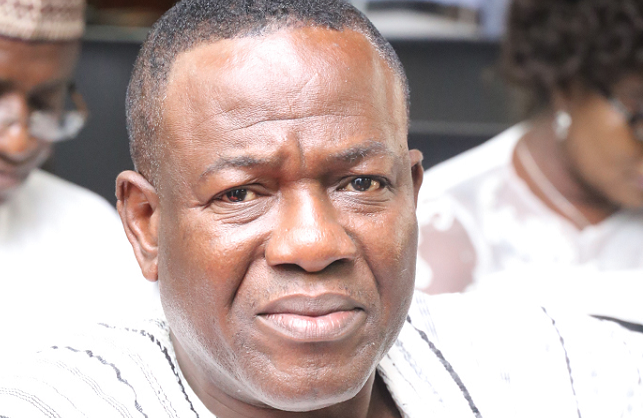
‘Chiefs, queenmothers must cooperate for development’
The Minister of Chieftaincy and Religious Affairs, Mr Samuel Kofi Ahiave Dzamesi, has called on chiefs and queenmothers in the country to promote peace and unity to enhance the development of the country.
He observed that the extent of conflicts existing between chiefs and their queenmothers in many parts of the country had negatively affected development.
Mr Dzamesi said this when he inaugurated three traditional councils in the Ashanti Region at separate ceremonies to round off his tour of the region.
The traditional councils are Domeabra, Mpasaaso and Manfo.
Mr Dzamesi had already inaugurated Asuboa, Beposo, Kwamang and Ntotroso Traditional Councils on separate occassions.
Elevated to paramountcy
The three traditional councils were among the 14 additional Divisional Stools in the Ashanti Region which were elevated to paramountcies in 1996 by the late Otumfuo Opoku Ware 11, the then Asantehene.
The 14 elevated chiefs thus qualify as traditional councils in fulfilment of the provisions of Section 12 (1) of the Chieftaincy Act 2008, Act 759, which states that "there shall be a traditional council in each Traditional Area".
The inauguration of the three traditional councils will, therefore, set in motion the full operations of the judicial committee in each of the three councils and in view of that, the councils could empanel five or three members of the council to hear and determine chieftaincy cases filed at the judicial committee.
Council members
The minister also advised councill members who would be appointed to the judicial committee to ensure that any case brought to them was adjudicated without any prejudice.
Mr Dzamesi appealed to the various judicial committee members to use their platform to improve working relationships between chiefs and their queenmothers.
The minister also urged the council to mobilise the people to undertake development programmes to supplement the central government's efforts.
He explained that although there were difficulties facing his ministry, plans were far advanced to provide each of the councils with human and material resources to aid their work.
The Omanhene of Mpasaaso, Nana Tabiri Gyansah III; Omanhene of Manfo Nana Kwame Ntim I and the Krontihene of Domeabra Nana Afum Amoah Agyarko in their speeches thanked Otumfuo Osei Tutu for fast-tracking their inauguration.
They also thanked the sector minister for his good work and assured him of their cooperation in the discharge of his duties.
The Omanhene of Bompata Traditional Area, Nana Effah Apenteng, who is incidentally the Deputy Chief of Staff at Manhyia Palace, chaired all the functions.
He advised the various judicial committee members not to abide by customary laws alone but the laws of the land as well.
